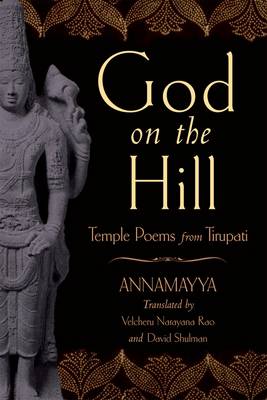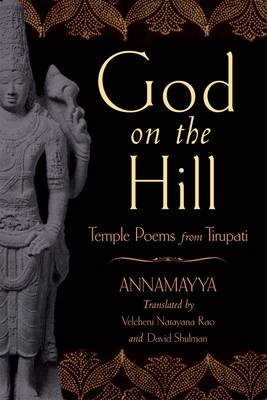
- Afhalen na 1 uur in een winkel met voorraad
- Gratis thuislevering in België vanaf € 30
- Ruim aanbod met 7 miljoen producten
- Afhalen na 1 uur in een winkel met voorraad
- Gratis thuislevering in België vanaf € 30
- Ruim aanbod met 7 miljoen producten
Zoeken
Omschrijving
The devotional poems of Annamaya (15th century) are perhaps the most accessible and universal achievement of classical Telugu literature, one of the major literatures of pre-modern India. Annamaya effectively created and popularized a new genre, the short padam song, which spread throughout the Telugu and Tamil regions and would become an important vehicle for the composition of Carnatic music - the classical music of South India. In this book, Rao and Shulman offer translations of 150 of Annamaya's poems. All of them are addressed to the god associated with the famous temple city of Tirupati-Annamaya's home-a deity who is sometimes referred to as "god on the hill" or "lord of the seven hills." The poems are couched in a simple and accessible language invented by Annamaya for this purpose. Rao and Shulman's elegant and lyrical modern translations of these beautiful and moving verses are wonderfully readable as poetry in their own right, and will be of great interest to scholars of South Indian history and culture.
Specificaties
Betrokkenen
- Auteur(s):
- Uitgeverij:
Inhoud
- Aantal bladzijden:
- 160
- Taal:
- Engels
Eigenschappen
- Productcode (EAN):
- 9780195182842
- Verschijningsdatum:
- 6/10/2005
- Uitvoering:
- Paperback
- Formaat:
- Trade paperback (VS)
- Afmetingen:
- 165 mm x 208 mm
- Gewicht:
- 204 g

Alleen bij Standaard Boekhandel
+ 74 punten op je klantenkaart van Standaard Boekhandel
Beoordelingen
We publiceren alleen reviews die voldoen aan de voorwaarden voor reviews. Bekijk onze voorwaarden voor reviews.











